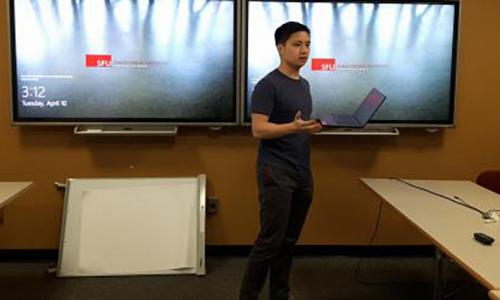
Many of you have planned ahead how you are going to spend your summer. Some of you may have secured a job or may already be working. Others may still be searching for work.
With the economic downfall continuing this summer; students are noticing the job hunt is much more limited than it has been in previous years.
So, how should you get started?
1. Know more about yourself - Highlight what makes you unique and stand out!
Think about your previous accomplishments and experiences. How do these achievements make you marketable? What makes you a better candidate for a job? What are your strengths, skills and special talents that make you a good fit for an organization and a job?
2. Get organized - Be prepared with your resume and cover letter
If an employer only has 30 seconds (or less) to go over your resume, you want to make those seconds count. Give a double-check to see if your resume is up to date, and be prepared to write some excellent cover letters. Try to use highlights of qualification and action words to mention your accomplishments and experiences, e.g. “Responsible for planning an event for 300 people”, “Demonstrated excellent leadership skills by facilitating group discussions.”
3. What about Social Media?
Have you heard of using LinkedIn to find a job? It is the largest online professional networking site. Make sure you have a professional profile picture with detailed descriptions for each of your job and volunteer experiences. Let your LinkedIn connections know that you’re looking for work, and let friends, family, and other contacts know as well. If still not sure about how LinkedIn works, check out Work-Life Careers 10 tips for using LinkedIn to find a Job and you may get a better idea of how to connect with professionals.
4. Build your own Network with access to potential employers
According to a report from ABC News, 80% of today’s jobs are landed through networking. “It is not what you know but who you know”. By making professional networks with face-to-face interaction, it helps to practice your verbal communication skills to help you gain more confidence. Also, you may learn about your field of interest. You may even get valuable insider information from professionals as well. Networking is one of the most effective tools in your job search, so why not make good use of the option?
Lastly, don’t get discouraged or disappointed! Job-hunting requires quite a bit of patience and a lot of perseverance. Even though you may not land a job right away, if you dedicate a generous amount of time and effort to the job hunt, it will pay off eventually. Be positive and proactive! Keep applying for jobs, stay confident of yourself and be open-minded.
If you want help with your summer work search, don’t hesitate to call Career Services at 778.782.3106 or make an appointment with any of our Career Advisors or Career Peers.
Good luck!















